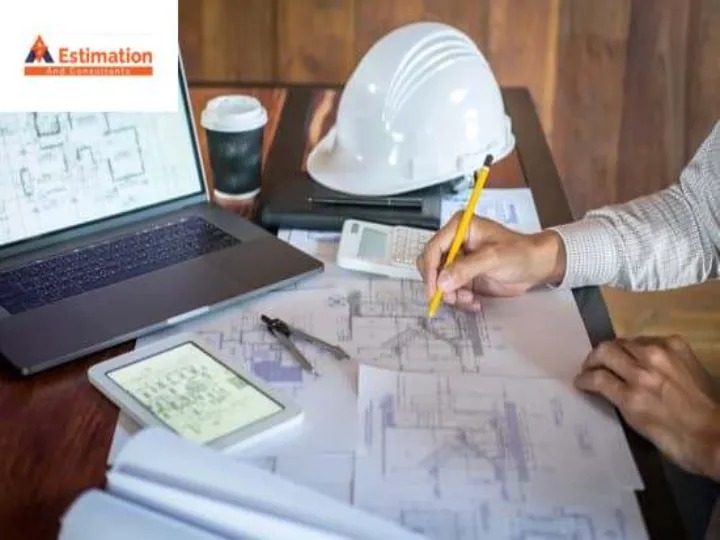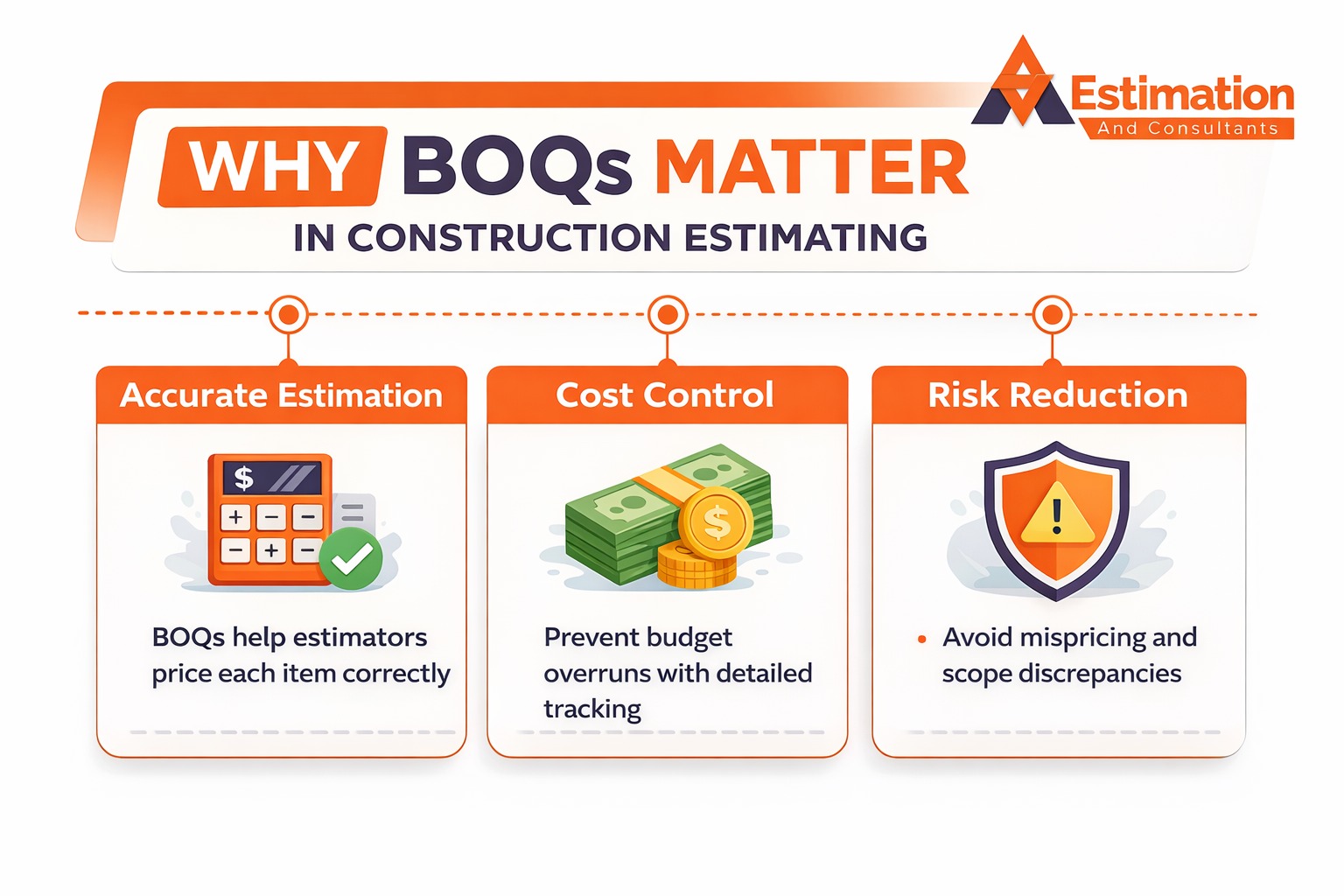When planning a home renovation or construction project, understanding the difference between a quick estimate and a full residential estimation is essential. Each serves a unique purpose and offers distinct insights that can significantly impact your project’s outcome. This guide will walk you through these two types of estimates, their features, and their relevance to successful project planning.
What Is a Quick Estimate?
A quick estimate is a preliminary assessment of project costs, often delivered swiftly with minimal details. It is typically based on general information provided by the homeowner, such as the project type, size, and scope.

Key Characteristics of a Quick Estimate:
- Speedy Delivery
- Quick estimates are usually prepared within hours or a few days.
- They are ideal for homeowners who need a ballpark figure to decide whether to pursue a project.
- Limited Detail
- These estimates rely on basic assumptions and lack granular breakdowns of labor, materials, or timelines.
- Often, they are calculated using standard cost ranges or previous project data.
- Accuracy Level
- Accuracy is relatively low, with a typical margin of error of 20-30%.
- Quick estimates should not be used for final budgeting decisions but for initial planning.
- Purpose
- To help homeowners gauge project feasibility.
- To offer a starting point for discussions with contractors.
What Is a Full Residential Estimation?
A full residential estimation is a comprehensive and detailed analysis of project costs. It involves an in-depth review of the project’s requirements, materials, labor, and potential challenges.

Key Characteristics of a Full Residential Estimation:
- Comprehensive Analysis
- Includes detailed breakdowns of costs for materials, labor, permits, and contingency funds.
- Accounts for specific project details, such as unique design elements or specialized equipment.
- Thorough Site Assessment
- Involves site visits to assess existing conditions, measure dimensions, and identify potential issues.
- Helps contractors create a tailored plan that minimizes risks and optimizes efficiency.
- High Accuracy
- Accuracy levels are significantly higher, with margins of error often below 5%.
- Provides homeowners with a reliable foundation for budgeting and financial planning.
- Time Investment
- Preparing a full estimate can take several days to weeks, depending on project complexity.
- It requires collaboration between contractors, architects, and other professionals.
- Purpose
- To establish a detailed and realistic project budget.
- To ensure all aspects of the project are accounted for, reducing the risk of unexpected costs.
Quick Estimate vs. Full Residential Estimation: A Side-by-Side Comparison
| Feature | Quick Estimate | Full Residential Estimation |
|---|---|---|
| Detail Level | General overview | Comprehensive cost breakdown |
| Accuracy | Moderate (20-30% margin of error) | High (5% margin of error) |
| Timeframe | Hours to a few days | Days to weeks |
| Preparation Effort | Minimal | Extensive |
| Purpose | Feasibility assessment | Budget planning and project execution |
Why Both Estimates Are Important
While a quick estimate and a full residential estimation have distinct roles, both are essential for a successful project.
When to Use a Quick Estimate:
- At the conceptual stage to determine whether the project aligns with your budget.
- When comparing contractors or evaluating the viability of different ideas.
- To establish a rough idea of costs before committing to detailed planning.
When to Use a Full Residential Estimation:
- During the planning and execution stage, when precise costs are necessary for budgeting.
- To identify potential risks and challenges that could affect timelines or expenses.
- For negotiating contracts with contractors based on detailed, itemized costs.
Benefits of Choosing the Right Estimate
Understanding when to request a quick estimate versus a full residential estimation ensures you’re better prepared for each phase of your project.

Benefits of Quick Estimates:
- Time-Efficient: Enables quick decision-making for conceptual ideas.
- Budget Awareness: Provides a rough cost range to evaluate affordability.
- Early Insights: Offers an initial snapshot of the project’s financial scope.
Benefits of Full Residential Estimation:
- Cost Control: Ensures all costs are accounted for, minimizing unexpected expenses.
- Transparency: Detailed breakdowns foster trust and clarity with contractors.
- Informed Planning: Helps avoid budget overruns and improves project timelines.
- Risk Mitigation: Identifies potential challenges, allowing for proactive solutions.
Common Misconceptions About Estimates
Quick Estimates Are Always Accurate
Many homeowners mistake quick estimates for precise figures. However, these are ballpark figures and can vary significantly from final project costs.
Full Residential Estimations Are Unnecessary for Small Projects
Even small projects can benefit from detailed estimates, as they ensure clarity and prevent scope creep.
Estimates Don’t Change
Project estimates can evolve due to market fluctuations, material availability, or changes in project scope. Regular reviews are essential.
Tips for Choosing the Right Estimate
- Understand Your Project Stage
- Use a quick estimate during the brainstorming phase.
- Transition to a full estimation as the project takes shape.
- Communicate Clearly with Contractors
- Provide detailed information for full estimates to enhance accuracy.
- Discuss the purpose of the estimate to align expectations.
- Ask for Transparency
- Ensure contractors explain the basis of their estimates, especially for quick assessments.
- Request itemized breakdowns in full estimations for better understanding.
- Consult Experts
- Consider professional residential estimating services for complex projects.
- Professionals ensure precise calculations, saving you time and money.
Conclusion
Both quick estimates and full residential estimations play critical roles in the planning and execution of home projects. While quick estimates provide an initial understanding of costs, full residential estimations offer the depth and accuracy needed for successful project management.
At AS Estimation & Consultants, we specialize in both quick and comprehensive residential estimations, tailored to meet your needs. Whether you’re in the early stages of planning or ready to finalize your project budget, our team is here to help. Contact us today for reliable and accurate estimates to ensure the success of your home project!


